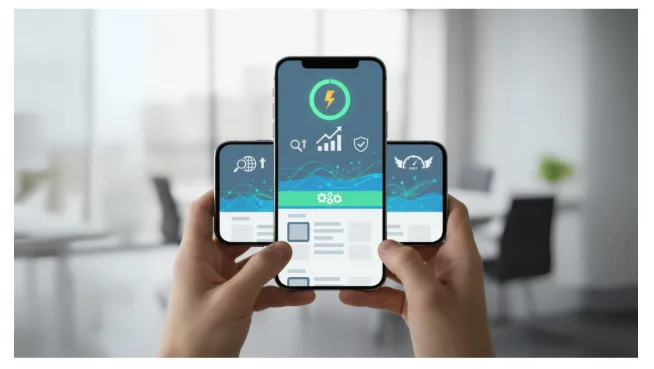Why Website Speed is the Secret Ranking Factor in SEO
Website speed has become a critical factor for websites, as user patience is reducing day by day. According to the research, users expect a page to load in less than 3 seconds. Moreover, website speed is a secret ranking factor in SEO as it directly impacts user experience, leading to better conversion rates, higher engagement, and reduced bounce rates.
Google prioritizes faster websites for the ranking factors as they fulfill the user demand for instant access to the information, instant loading on slow mobile networks, where users are less patient. Fast websites also have a higher chance of being crawled by Google, allowing search engines to index your content faster.
However, slow-loading websites frustrate users and directly impact search engine rankings and conversion rates. Thus, website speed optimization is important for the success of any business. In this blog, we will understand the significant impacts of website speed and delve into the methods to speed up your website.
Why Website Speed Matters for SEO
Search engines, notably Google, care a lot about giving users the best experience. And nothing makes users frustrated than having to wait for a slow website to load. That’s why improving the speed of a website is not only a technical enhancement, but also a hidden ranking element in SEO.
A fast-loading website is important for:
- Higher visibility search results (Google favors speed).
- Better crawl efficiency (Googlebot can index more pages).
- More engagement and fewer bounce rates.
If you want your website to rise higher in search results, you have to invest in website speed optimization.
Impact of Website Speed on User Experience
Website speed has a big effect on how users feel about the site because a slow site makes them leave right away. Speed provides a first impression on the user, motivating them to browse further.
1. First Impression is Important
Users’ initial impression of a website is how fast it loads. If your site is slow, it might make your brand look old, amateurish, or untrustworthy. On the other hand, sites that load quickly look professional and trustworthy.
2. Engagement and Retention
Websites that load quickly make it easy to browse. When pages load quickly, people are more likely to look at more content, click on more links, and stay on your site longer.
3. Minimized Bounce Rates
Every second matters. Users may leave if there is even a 2–3 second wait. Users will probably find a faster option, which is likely to be your competition, if your site is slow. That’s why it’s important to focus on website speed optimization to retain visitors.
Direct and Indirect Effects on SEO
As Google prioritizes speed and user experience for ranking websites, slow-loading websites can lack in terms of SEO and create a bad user experience. Thus, website speed directly impacts the SEO of a website. Let’s understand how:
Website Speed As A Ranking Factor
Google has said since 2010 that page speed is a factor in rankings. Search engines give higher rankings to websites that load quickly because they meet user expectations.
Core Web Vitals
Loading speed, interaction, and visual stability are very important to Google’s Core Web Vitals, which are a set of performance indicators. To keep your SEO performance robust, you need to meet these guidelines.
Crawling Efficiency
Googlebot takes longer to crawl fewer pages if your site loads slowly. This means that some of your valuable material may not get indexed very often. Optimizing the speed of your website makes it easier for crawlers to find all of your material.
Mobile Optimization: An Important Aspect
In a world where most people use their phones to browse, shop, and interact with content, we live in a mobile-first world. It’s much more vital to optimize mobile loading speed because:
- Mobile users are less patient with slow sites and instantly abandon the slow-loading sites.
- Connections are slower on mobiles, so it’s very important to optimize pages.
- Google uses mobile-first indexing, which means that how well a mobile site works affects its ranks.
In short, mobile optimization should be at the top of your optimization list if you want to make your website load faster.
Other Benefits Of A Fast Website
Faster websites not only rank higher, but also increase conversions and encourage customer retention.
More Conversions
Users can buy things, sign up, or download things more easily on a website that loads quickly. Research shows that a 1-second delay in load time can lower the number of conversions up to 7%.
Better Metrics For Engagement
Users are happier with sites that load quickly. Better speed makes metrics like time on site, pages per session, and return visits better, which in turn helps your SEO.
How To Improve Your Website Speed
These tips for speeding up websites work for all types of sites, whether you’re using WordPress, Shopify, or trying to speed up your Wix website:
- Make images better: Use next-gen formats like WebP and compress files. Enable caching to cut down on repetitive server calls.
- Use a Content Delivery Network (CDN) to provide material to users throughout the world more quickly.
- Minify Code: Make your CSS, JavaScript, and HTML cleaner so they load faster.
- Pick Fast Hosting: A server that works well cuts down on load time by a lot.
- Mobile Optimization: Make sure that your pages are responsive and light for mobile users.
Last Thoughts
Website speed isn’t just a technical metric; it’s the secret SEO ranking factor that affects how users interact with your site, how well search engines crawl it, and how many conversions it makes. By keeping website performance optimization a top priority, you not only improve your chances of getting a higher ranking on Google, but also enhance user experience, encouraging them to visit again.
In the quest for SEO success, speed always wins. This is true whether you run a business website, a personal blog, or want to speed up your Wix website.
FAQs
1. Why Is Website Speed Crucial For SEO?
Website speed is crucial for SEO as it has a direct effect on user experience, conversion rates, and bounce rates. Google uses speed as a ranking criterion, so optimizing your website’s speed will help in search visibility and performance in search engines.
2. How Can A Slow Website Hurt Your SEO Rankings?
A slow website frustrates users, increases bounce rates, makes them leave, and makes them less likely to interact. Search engines interpret these signals as bad, which affects your SEO rankings.
3. What Are Google’s Core Web Vitals, And How Do they Affect the Speed of a Website?
Google utilizes Core Web Vitals metrics to measure how well a website works for users. These include loading speed, interactivity, and visual stability. To do well in SEO, you need to meet these benchmarks.
4. How Does Website Speed Affect the User Experience?
Websites that load faster make a better first impression, keep users interested, and lower bounce rates. On the other hand, slow websites make people depart quickly, which lowers sales and conversions.
5. Does Website Speed Matter For SEO?
Yes, of course. Because Google uses mobile-first indexing, the speed of your mobile site directly affects your SEO rankings. In the mobile-first world, mobile speed optimization is important for ranking higher in search engines.
6. How Can I Speed Up My Wix Website?
You can speed up your Wix website by optimizing images, enabling the caching feature, using a Content Delivery Network (CDN), eliminating heavy scripts, and keeping the design light so that it works better on mobile devices.






